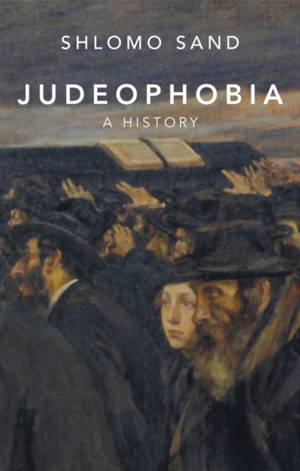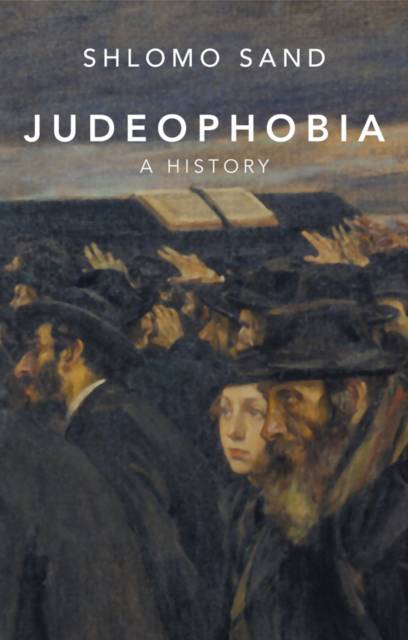
- Afhalen na 1 uur in een winkel met voorraad
- Gratis thuislevering in België vanaf € 30
- Ruim aanbod met 7 miljoen producten
- Afhalen na 1 uur in een winkel met voorraad
- Gratis thuislevering in België vanaf € 30
- Ruim aanbod met 7 miljoen producten
Zoeken
Omschrijving
Throughout the history of the Western world, Jews have suffered various forms of exclusion, stigmatisation, and discrimination that have forced them always to be aware of their very particular situation. The Jews became a community under siege and, as Shlomo Sand argues, Judaism was shaped by the hostile gaze of Christian civilization. While the forms of hostility endured by the Jews have varied over the centuries, it is impossible to understand twentieth century anti-Judaism, or Jewish identity itself, without taking account of the sediments of mental hatred, fuelled by religious belief, which have survived the passage of time. While antisemitism is the term commonly used today, Sand prefers 'Judeophobia', which predates the appearance of 'antisemitism' and is more precise. Looking back over the centuries, he seeks to identify some of the stages in the age-old, incandescent hatred of the Jews and tries to understand what remains today of this trenchant hostility. He also questions whether Zionism, born as a distressed response to modern Judeophobia, has ended up mirroring it. To what extent has Zionism inherited the ideological foundations that have always been characteristic of the persecutors of the Jews? This concise history of anti-Jewish hatred will be of great interest to anyone concerned with one of the most insidious and persistent features of Western civilization. Throughout the history of the Western world, Jews have suffered various forms of exclusion, stigmatisation, and discrimination that have forced them always to be aware of their very particular situation. The Jews became a community under siege and, as Shlomo Sand argues, Judaism was shaped by the hostile gaze of Christian civilization. While the forms of hostility endured by the Jews have varied over the centuries, it is impossible to understand twentieth century anti-Judaism, or Jewish identity itself, without taking account of the sediments of mental hatred, fuelled by religious belief, which have survived the passage of time. While antisemitism is the term commonly used today, Sand prefers 'Judeophobia', which predates the appearance of 'antisemitism' and is more precise. Looking back over the centuries, he seeks to identify some of the stages in the age-old, incandescent hatred of the Jews and tries to understand what remains today of this trenchant hostility. He also questions whether Zionism, born as a distressed response to modern Judeophobia, has ended up mirroring it. To what extent has Zionism inherited the ideological foundations that have always been characteristic of the persecutors of the Jews? This concise history of anti-Jewish hatred will be of great interest to anyone concerned with one of the most insidious and persistent features of Western civilization.
Specificaties
Betrokkenen
- Auteur(s):
- Vertaler(s):
- Uitgeverij:
Inhoud
- Aantal bladzijden:
- 140
- Taal:
- Engels
Eigenschappen
- Productcode (EAN):
- 9781509570782
- Verschijningsdatum:
- 6/04/2026
- Uitvoering:
- Paperback
- Formaat:
- Trade paperback (VS)
- Afmetingen:
- 216 mm x 137 mm
- Gewicht:
- 190 g

Alleen bij Standaard Boekhandel
+ 41 punten op je klantenkaart van Standaard Boekhandel
Beoordelingen
We publiceren alleen reviews die voldoen aan de voorwaarden voor reviews. Bekijk onze voorwaarden voor reviews.








